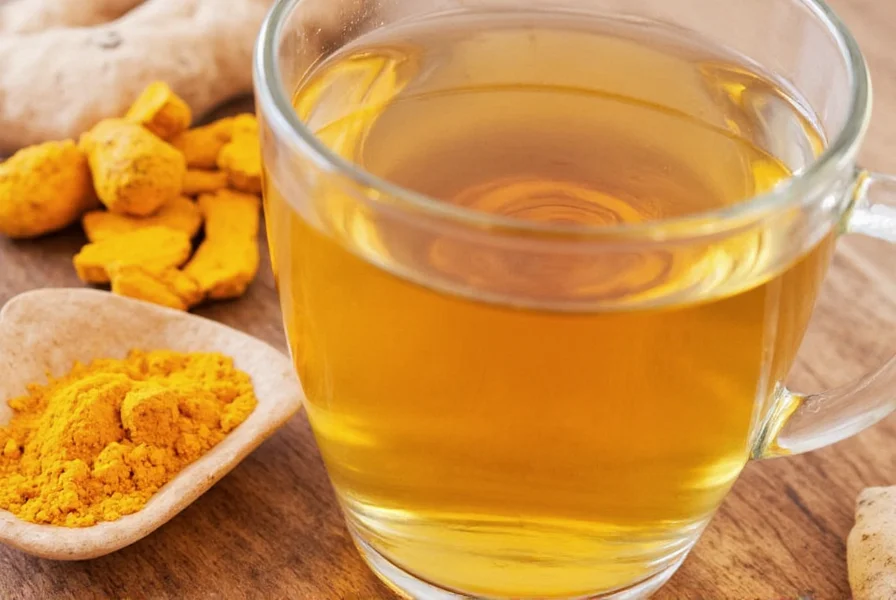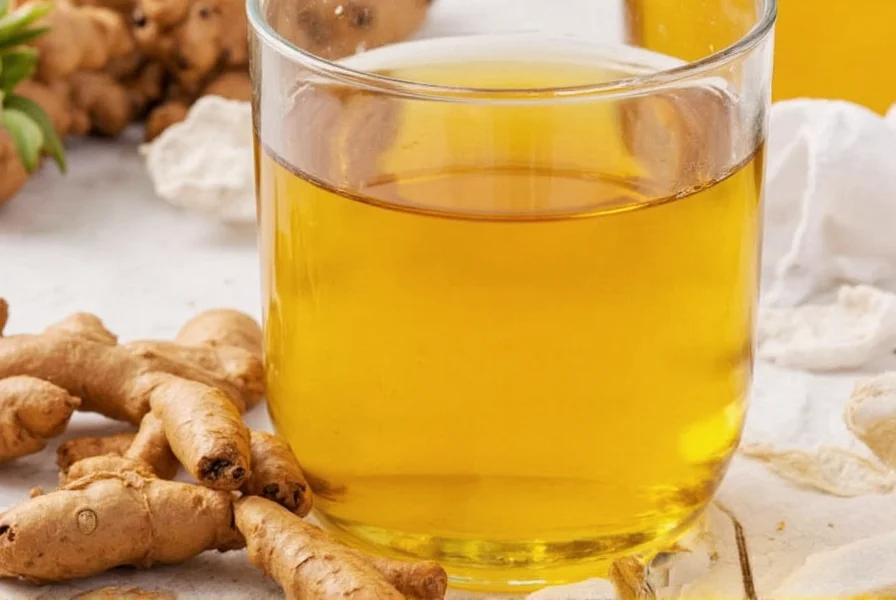
The Science-Backed Benefits of Turmeric Ginger Tea
When you combine turmeric and ginger in tea form, you create a potent beverage with multiple health advantages supported by scientific research. The active compounds—curcumin in turmeric and gingerols in ginger—work together to deliver enhanced benefits compared to either spice alone. This synergy explains why turmeric ginger tea for inflammation has become such a popular natural remedy.
Multiple clinical studies published in journals like Food & Function and Journal of Medicinal Food demonstrate that regular consumption of this tea can significantly reduce markers of inflammation in the body. The anti-inflammatory effects come from how these compounds inhibit inflammatory pathways at the molecular level, similar to some pharmaceutical approaches but without the side effects.
How Turmeric Ginger Tea Works in Your Body
The magic happens through several biological mechanisms. Curcumin, turmeric's primary active compound, modulates more than 70 different molecular targets involved in inflammation. Gingerols from ginger complement this by blocking the production of inflammatory cytokines. When consumed together in tea form, these compounds create what researchers call an "entourage effect"—where the combined impact exceeds what either could achieve separately.
For optimal absorption of curcumin (which has notoriously poor bioavailability), always include black pepper in your turmeric ginger tea recipe with black pepper. Piperine in black pepper increases curcumin absorption by up to 2,000%. Adding a small amount of healthy fat like coconut oil or almond milk further enhances absorption of these fat-soluble compounds.
Research-Supported Health Benefits
Let's examine what the scientific evidence actually says about health benefits of turmeric ginger tea, separating fact from popular claims:
| Benefit | Scientific Evidence Level | Recommended Consumption |
|---|---|---|
| Reduces inflammation | Strong (multiple human studies) | 1-2 cups daily for chronic inflammation |
| Supports digestion | Moderate (animal and limited human studies) | Before or after meals for digestive issues |
| Boosts immunity | Preliminary (lab studies) | Regular consumption during cold season |
| Pain relief | Moderate (particularly for osteoarthritis) | Consistent daily consumption |
How to Make the Most Effective Turmeric Ginger Tea
Creating an effective how to make turmeric ginger tea for inflammation requires attention to preparation details that maximize the bioactive compounds:
Basic Recipe for Maximum Benefits
- 1 cup filtered water (not boiling, around 175°F/80°C)
- 1/2 teaspoon ground turmeric (or 1-inch fresh turmeric root, grated)
- 1/2 teaspoon fresh ginger, grated (about 1-inch piece)
- Pinch of black pepper (essential for absorption)
- 1 teaspoon coconut oil or almond milk (for fat-soluble compounds)
- Optional: Raw honey or lemon to taste
Bring water to a gentle simmer, add turmeric, ginger, and black pepper. Simmer for 10 minutes (don't boil vigorously as this degrades compounds). Remove from heat, stir in coconut oil, and let steep 5 more minutes. Strain if using fresh roots. Add honey or lemon if desired.
Timing Matters: Best Time to Drink Turmeric Ginger Tea
Research suggests timing affects benefits. For turmeric ginger tea for digestion, consume 15-20 minutes before meals to stimulate digestive enzymes. For inflammation support, many studies show best results with consistent daily consumption, preferably in the morning to support your body's natural anti-inflammatory rhythms. Avoid drinking too close to bedtime as ginger can be stimulating for some people.
Potential Side Effects and Important Considerations
While generally safe, understanding potential side effects of turmeric ginger tea is crucial for responsible consumption:
- Blood thinning effects: Both turmeric and ginger have mild anticoagulant properties. Those taking blood thinners like warfarin should consult their doctor.
- Gallbladder concerns: Turmeric may stimulate gallbladder contraction, problematic for those with gallstones.
- Digestive sensitivity: High doses may cause heartburn or stomach upset in sensitive individuals.
- Iron absorption: Very high turmeric intake may interfere with iron absorption.
The generally recommended daily limit is 1-2 cups for most adults. Pregnant women should consult their healthcare provider before regular consumption, as high doses of ginger may affect pregnancy in certain circumstances.
What the Research Really Says
When evaluating scientific evidence for turmeric and ginger tea, it's important to distinguish between promising preliminary research and established medical treatments. While numerous studies show positive effects, most research has been conducted in laboratories or with small human groups. Larger, long-term human studies are still needed.
A 2022 meta-analysis in Nutrients concluded that while both spices show significant anti-inflammatory potential, the concentrations achieved through tea consumption are lower than those used in clinical studies. This suggests that while beneficial, turmeric ginger tea should complement—not replace—conventional medical treatments for serious conditions.
Common Questions About Turmeric Ginger Tea
How often should I drink turmeric ginger tea for optimal benefits?
For general wellness, 1-2 cups daily provides optimal benefits without risk of side effects for most people. Those targeting specific concerns like inflammation may benefit from consistent daily consumption for 8-12 weeks to notice significant effects, as the compounds build up in your system over time.
Can I use ground spices instead of fresh for turmeric ginger tea?
Yes, ground turmeric and ginger work effectively in tea, though fresh provides slightly higher concentrations of active compounds. Use 1/4 to 1/2 teaspoon of ground spices per cup. Ground turmeric offers more consistent curcumin levels compared to fresh, which varies by root quality and age.
Why is black pepper essential in turmeric ginger tea recipes?
Black pepper contains piperine, which inhibits certain digestive enzymes that break down curcumin. This increases curcumin absorption by up to 2,000% according to research published in Planta Medica. Without black pepper, your body absorbs less than 1% of the curcumin in turmeric.
How long does it take to feel the benefits of turmeric ginger tea?
Most people notice digestive benefits within a few days of regular consumption. For inflammation reduction, studies suggest consistent daily consumption for 4-8 weeks is typically needed to experience noticeable effects, as curcumin builds up in the system gradually.
Can turmeric ginger tea help with weight loss?
While not a weight loss solution, turmeric ginger tea may support metabolic health. Ginger has been shown to increase thermogenesis slightly, and turmeric may help regulate blood sugar. However, any weight effects would be modest and should be combined with proper diet and exercise for meaningful results.











 浙公网安备
33010002000092号
浙公网安备
33010002000092号 浙B2-20120091-4
浙B2-20120091-4